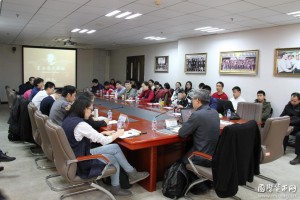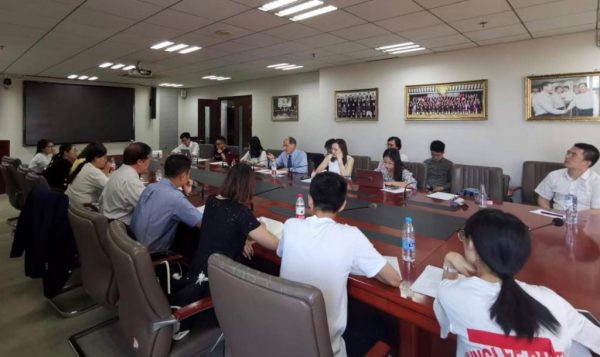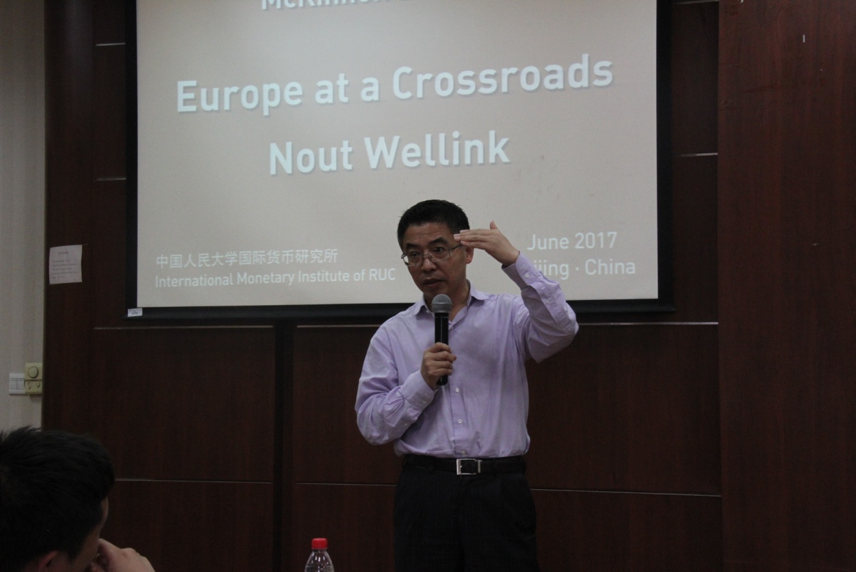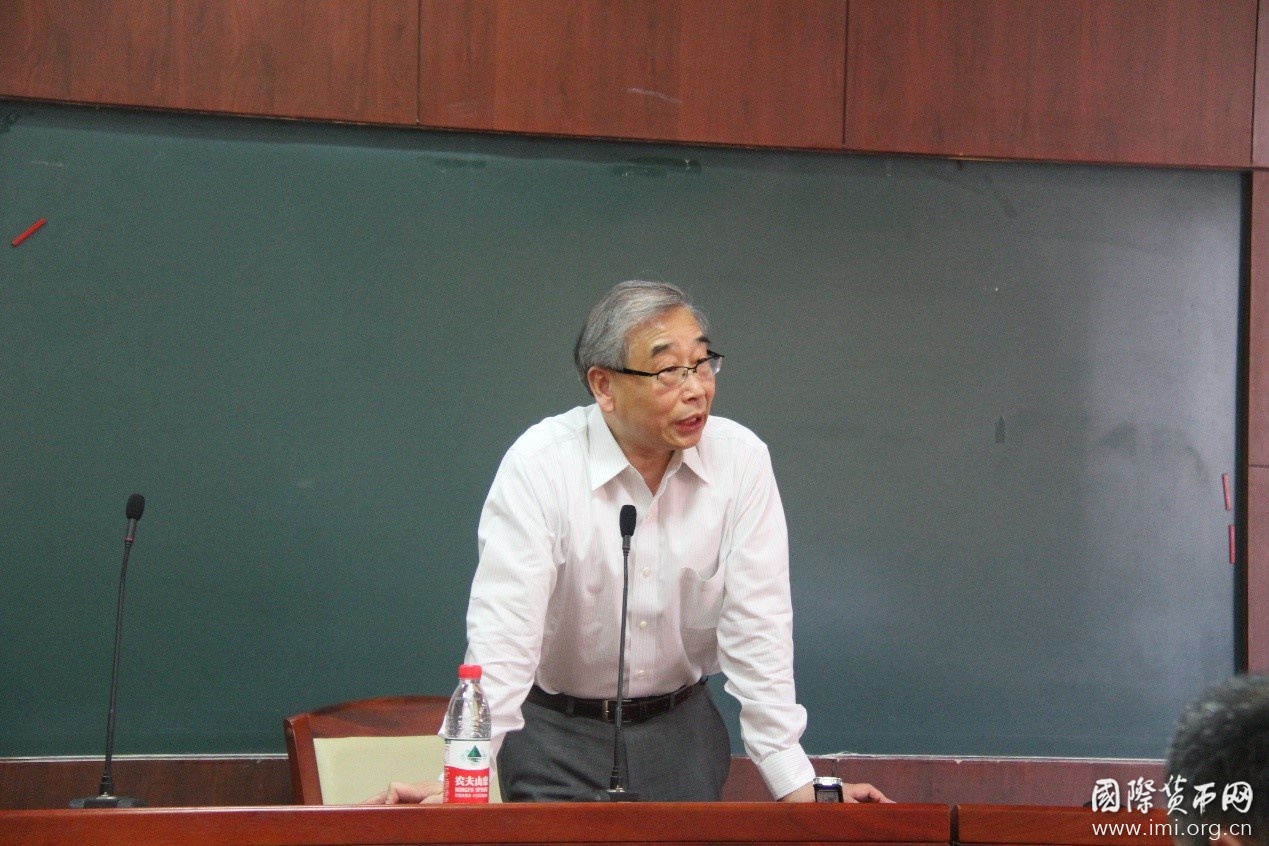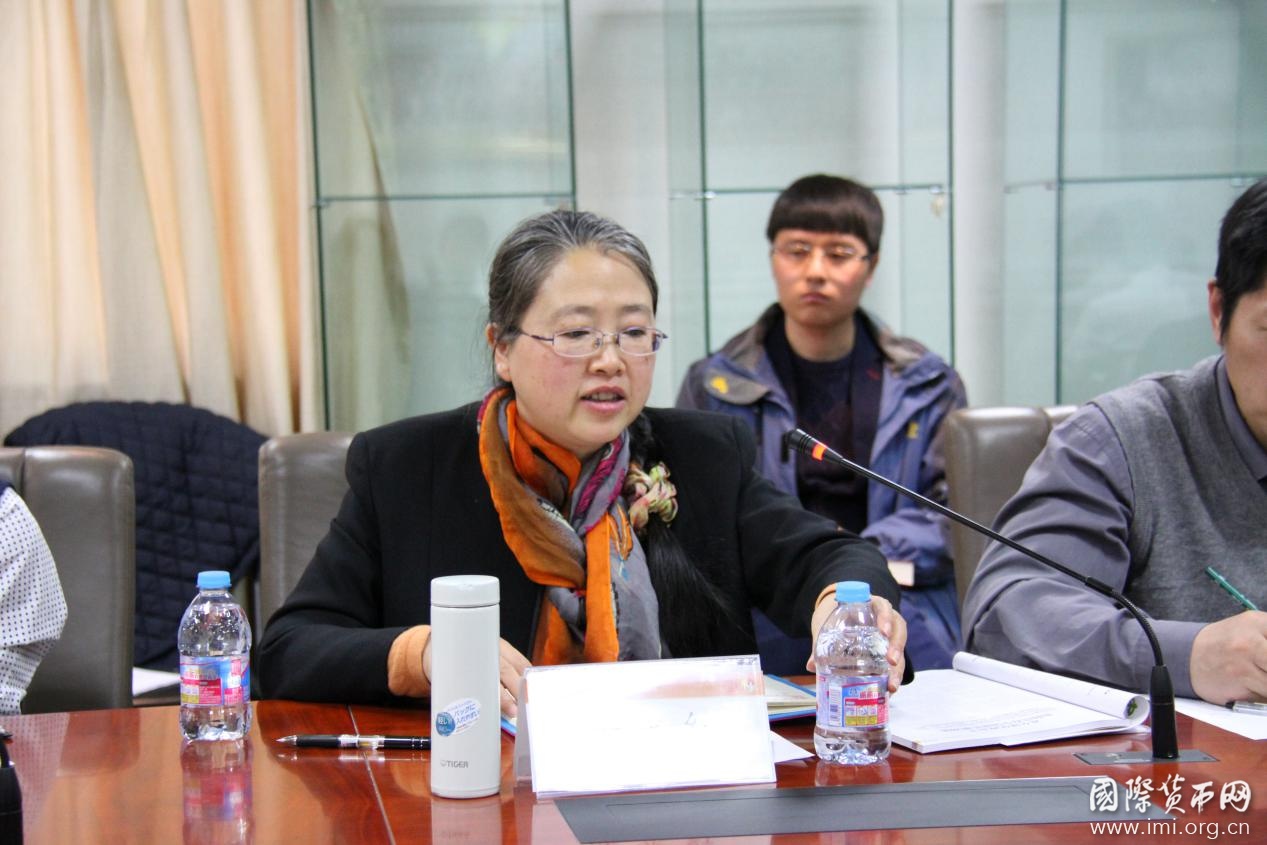McKinnon Lectures (No. 10): Opportunities and Responsibilities of RMB, Hong Kong Currency and SDR
2016-12-10 IMI Starting from globalization, Prof. Xiao analyzed China’s lessons of experiences in the process of marketization. He elaborated on the core competitiveness of RMB internationalization and brought up his own opinions on establishing and developing international public infrastructure and monetary system.
Starting from globalization, Prof. Xiao analyzed China’s lessons of experiences in the process of marketization. He elaborated on the core competitiveness of RMB internationalization and brought up his own opinions on establishing and developing international public infrastructure and monetary system.
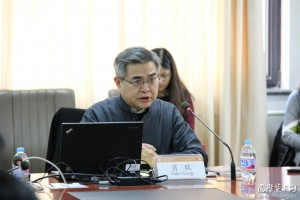 Prof. Xiao pointed out, driven by revolutionary technologies like the internet and AI, globalization has developed rapidly during the past two decades. Transaction costs dropped in a big margin and multinational companies were increasingly expanded. Globalization has exerted great impacts on parts of traditional industries, threatening social stability to some extent and even leading to anti-globalization movement. However, the development of technology determines that globalization trend is unstoppable. In this context, China’s marketization should not only remain on the surface, but go deeper to the essence, promote freer capital flow and at the same time continue the strategy of “following the dollar”, so as to maintain the stability of RMB exchange rates.
Prof. Xiao also stressed that RMB’s core competitiveness lies on national debt market, as non-risk market interest rates played an important role in market pricing. But China’s current interest rate market lacks breadth and depth. The pricing is inconsistent with the real needs of China’s real economy and requires further reform and experiences from the national debt market in developed countries. Meanwhile, China, with 1/5 of the world’s population and as the representative of emerging markets, should take on the responsibility of providing financial public services for emerging markets economies and mitigate their contradiction with developed countries headed by the US, especially after RMB’s inclusion in the SDR basket.
Prof. Xiao pointed out, driven by revolutionary technologies like the internet and AI, globalization has developed rapidly during the past two decades. Transaction costs dropped in a big margin and multinational companies were increasingly expanded. Globalization has exerted great impacts on parts of traditional industries, threatening social stability to some extent and even leading to anti-globalization movement. However, the development of technology determines that globalization trend is unstoppable. In this context, China’s marketization should not only remain on the surface, but go deeper to the essence, promote freer capital flow and at the same time continue the strategy of “following the dollar”, so as to maintain the stability of RMB exchange rates.
Prof. Xiao also stressed that RMB’s core competitiveness lies on national debt market, as non-risk market interest rates played an important role in market pricing. But China’s current interest rate market lacks breadth and depth. The pricing is inconsistent with the real needs of China’s real economy and requires further reform and experiences from the national debt market in developed countries. Meanwhile, China, with 1/5 of the world’s population and as the representative of emerging markets, should take on the responsibility of providing financial public services for emerging markets economies and mitigate their contradiction with developed countries headed by the US, especially after RMB’s inclusion in the SDR basket.
